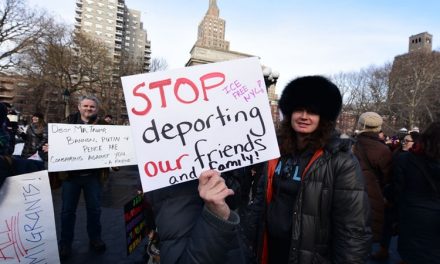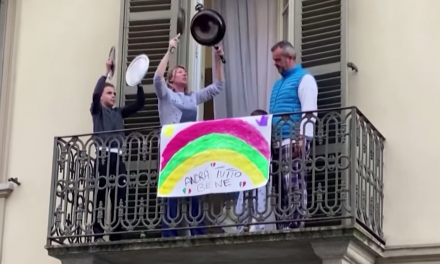My God, my God, why have you abandoned me?
They divide my garments among them,
and for my vesture they cast lots.
But you, O LORD, be not far from me;
O my help, hasten to aid me.

Catholics who attend the Palm Sunday Mass this weekend will have the opportunity to accompany Jesus during his passion. After we pray Psalm 22, we see the motifs anew in the gospel reading. One way of reading scripture invites one to place oneself in the narrative, as a character in the story, and imagine how the gospel scene plays out as you imagine yourself witnessing the events. I invite us all to imagine the gospel narrative this week through the eyes of a detained child in custody on the border of the United States, or a family stuck in Tijuana seeking asylum in the United States. “Why have you abandoned me?” Where is God in this space? Where is God in the midst of dehumanizing rhetoric from the US Commander in Chief? Where is God in the immigration system that is reaching a breaking point?
Jesus was put to death by the state. Who is to blame? Luke’s storytelling does not give a tidy answer. Pilate, Herod, religious leaders, Roman soldiers, Judas, the crowd—there are plenty of people who are complicit and many more who remain silent, choosing apathy over advocacy for a man unjustly accused. Where am I in this story? I may not be the soldier who is driving nails into Jesus’s wrists, but am I a silent witness to injustice, refusing to mobilize good people to do anything about it? Am I an “acquaintance who stands at a distance”? Do I read in the newspaper that the Trump administration said it could take up to two years to identify thousands of separated migrant children, and move on with my day? Do I stand back and watch as border agents are told to disregard judge’s orders in order to enforce illegal presidential policies?
Chances are if you are going to liturgy this weekend, you are not in an immigration detention center. But your experience of the gospel this weekend can be an opportunity for asking difficult questions about the meaning of the cross not only in Luke’s gospel but in our own context. Who are the crucified peoples today? Where is God in their abandonment? What do we learn from meditating on the way Jesus suffered, the way that Jesus knows deeply what it means to be abandoned by his friends, rejected by authorities, misunderstood in his ministry, and to be killed by the state?
I don’t have a tidy theology of the cross. But two take-aways from my meditation on the passion through the lens of the border crisis include:
1. Don’t be part of the mindless mob mentality.
We reenact the crowd scenes when we shout “Crucify him!” during the reading of the passion. How does this form us as moral agents in our own context? I think it invites us to think of how we need to seek credible information from reliable sources (not Presidential tweets). Don’t follow the crowd without asking questions. Our country is not “full” no matter what the President tweets. And any alien who is physically present in the United States or at a US port of entry should be able to apply for asylum, regardless of her current immigration status. Trump’s policies of family separation are cruel and unnecessary and they aren’t working as a method of deterrence.
2. Compassion and justice go hand-in-hand.
Joseph of Arimathea and the faithful women demonstrate compassion and care for the body of Jesus after his death. As Luke tells the story, Joseph “had not consented” to Jesus’s unjust arrest and crucifixion. It must have been devastating for him to witness the death of Jesus from his sense of a lack of power during the arrest and crucifixion narrative.
In our own context, we can interpret Joseph’s story as an example of someone who demonstrates compassion. But compassion doesn’t go far enough. Compassion from one person doesn’t prevent the unjust death of Jesus. The US Bishops have consistently advocated for both compassion and justice in the immigration debates. In 2003, the US bishops stressed that vulnerable migrant populations, including refugees, asylum seekers, and unaccompanied minors should be afforded protection, without being placed in incarceration while their claims are being considered. (SNL, 37, 82, 99). A year ago, the US Catholic bishops of the US-Mexico border wrote: “Current law in the United States rightly provides that those arriving to our country fleeing persecution are entitled to due process as their claims are reviewed. Seeking refuge from persecution and violence in search of a peaceful life for oneself and one’s family is not a crime. Our faith calls us to respond with compassion to those who suffer, and to live in a spirit of solidarity with all human beings.” (April 6, 2018). In all cases, the bishops have consistently argued that US policy should ensure that the best interests of the child guide placement and release decisions made by the federal government and the Office of Refugee Resettlement.
This weekend can be an opportunity to ask how God is calling me to act with compassion and justice. To read about organizations practicing compassion and justice on the ground today, see: Rapid Response Network, Border Angels, and Catholic Charities Immigration and Refugee Services.



